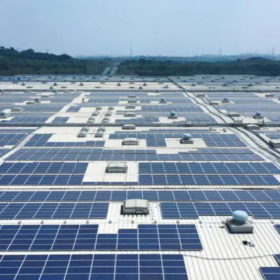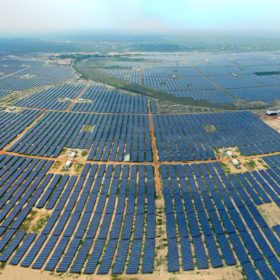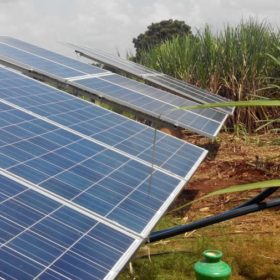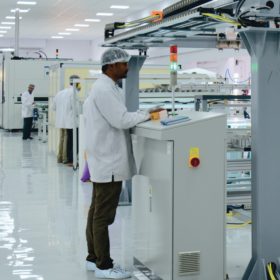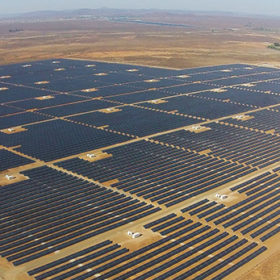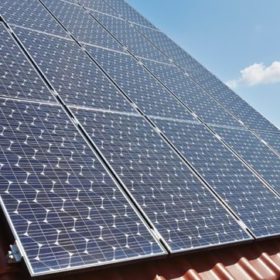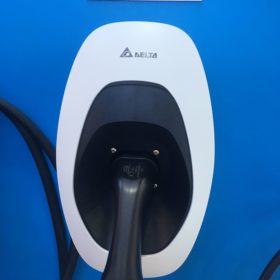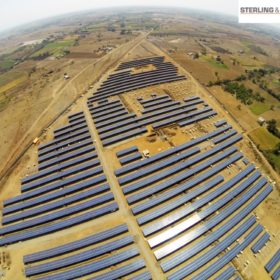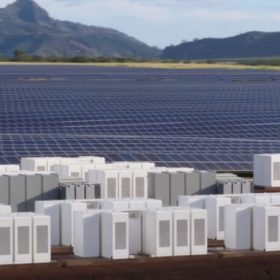DISCOM reforms, access to finance key to solar uptake
Power distribution reforms and scaling up of solar adoption among MSMEs through captive renewable energy policy and comprehensive Credit Guarantee Mechanism are among measures expected from the budget.
Adani rolls out roadmap to become largest renewable power player by 2030
India’s largest private-sector thermal power producer—which ranked as the sixth largest solar player globally in 2019—will invest over 70% of its budgeted Capex for the energy vertical into clean energy and energy-efficient systems to fuel its transformation.
Tripura tenders solarization of 1300 agriculture pumps under KUSUM
Bidding closes on February 10 for the solar systems that are to be set up on turnkey basis. Completion period is eight months from the award of contract.
India’s solar cell and module exports grow 157% in eight months
Following a dip in the last fiscal year, the value of cell exports saw a massive surge to an estimated Rs133,000 lakh from April to November. Exports to the U.S. tripled during the eight-month period as shipments to Turkey and Belgium rebounded to become the next two biggest export markets.
Sterling and Wilson Solar wins Middle East award for utility-scale project
The Mumbai-based solar EPC solutions provider has to its credit 9.2 GWp of solar power projects (commissioned and under construction) globally, including 3.05 GWp in the MENA region.
Loom Solar wins the ‘Fastest Growing SMB of the Year’ award at Amazon SMBhav 2020
The monocrystalline solar panel manufacturer aims to reach 100 million customers and achieve Rs 100 crore revenue by FY 2020-21.
CEL amends 5 MW module supply tender for Maharashtra
Eligibility criteria has been relaxed to include authorized distributors, resellers and dealers as well. Further, there are relaxations in the supply order carried out in the last one year. Bidding now closes on January 22.
Delta Electronics launches 22KW AC EV charger and 125KW string PV inverter
The wall-mount charger with a high power output of 22 KW AC maximum reduces electric vehicle charging time by up to 70% in comparison to common 7KW AC chargers. The 125 KW string inverter—a cloud-connected three-phase solution—enables cost-efficient decentralized photovoltaic systems for both ground-mounted and large commercial applications.
India will need 125,000 km2 land to achieve its renewable targets, says TNC research
The land required to meet India’s 2022 renewable energy target ranges from approximately 55,000 to 125,000 km2, or areas roughly the size of Himachal Pradesh or Chhattisgarh, respectively. This much land is likely to impact 6700–11,900 km2 of forest land and 24,100–55,700 km2 of agricultural land. The good news is that India’s already degraded lands have the potential of 1789 GW, which is more than ten times the 175 GW target.
Energy Storage: Top 5 Li-ion battery trends to watch out for
The Internet of Things, cloud analytics and artificial intelligence will find their way into battery management too, enabling OEMs to precisely measure and improve the life of their deployed assets. Lower battery costs and increased adoption in high-power commercial electric vehicles and grid support are the other trends shaping the market.
